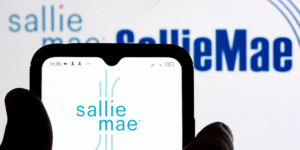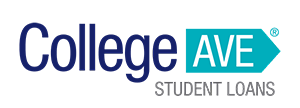There is a lot of interest in refinancing student loans today. If you are someone who is interested in refinancing and are actively researching reviews, benefits, and pros/cons of reputable companies, then let’s talk about South Carolina Student Loan and their refinancing options.
South Carolina Student Loan is unique because they specifically seek customers that are South Carolina residents or people who graduated from a college or university in their state. They are strictly in the student loan business and offer both student loans for your initial education and refinanced student loans.
Their refinance opportunities are for private loans as well as most federal loans, including direct and PLUS loans. Their only exceptions are Perkins loans and loans for bar prep or medical residency.
South Carolina Student Loan Refinancing: Company Overview
The South Carolina Student Loan organization is a non-profit public interest corporation instituted by the state of South Carolina in 1973. Since that time, their goal has been to help students pursue higher education while educating them to save more and borrow less. Their approach has been so successful that it has helped South Carolina to recognize some of the lowest student loan default rates in the country.
Unlike many other lenders in the refinance marketplace, South Carolina Student Loan only focuses on student loans and student loan refinances. They do not offer ancillary banking, lending, or credit union services.
Their refinance product is called Palmetto Assistance Refi Loan (PAL Refi) and features interest rates that are determined by the length of the loan term. For example, if you have a 5-year term, your interest rate will be lower than if you opt for a 20-year term. This interest rate is set based on both length of term as well as your creditworthiness.
How does that work?
Keeping in mind that interest rates change every day, as of April 2022 this is the current breakdown of refinancing rates based on today’s fixed rates and two different levels of credit scores:
Loan Term Average Credit Score Good Credit Score
(670-729) (730+)
5 Year 4.57%–5.24% 2.99%–3.91%
10 Year 5.24%–5.91% 3.91%–4.57%
15 Year 5.91%–6.57% 4.57%–5.24%
20 Year 6.57%–7.24% 5.24%–5.91%
The 2 Best Companies to Refinance Student Loans
Our Top-Rated Picks for 2024 Offer Low Rates and No Fees

More information about South Carolina Student Loan
For South Carolina residents and their families or those who graduated from schools in South Carolina, these are the options available:
- South Carolina offers both fixed and variable rate refinance loans. Variable rate loans are updated quarterly based on the one-month London Interbank Offered Rate (LIBOR) and are ultimately capped at 12%.
- South Carolina offers a 0.25% auto pay deduction to save even more when you sign up to have your payments automatically deducted on or before your due date each month.
- PAL Refi loans are available for your collective student loan debt between $5,000 and $250,000.
- Forbearance or deferment options are possible but must be approved by the loan servicing partner – Firstmark Services (owned by NelNet).
- SCSL offers flexible terms of 5, 10, 15, and 20 years.
To be eligible to refinance your federal and private loans, you need to meet these requirements:
- Be a South Carolina resident or have graduated from a South Carolina college or university.
- Be in good standing with all education loans that you are refinancing with no forbearance or deferments in place and no loans in default.
- Be creditworthy with a credit score of 670 or higher or have a suitable cosigner.
- Be a U.S. citizen or permanent resident of the U.S.
- Be employed or have a verifiable source of income whether a job(s) or owning a business.
- Be the named borrower on the loans being refinanced — not the cosigner.
- Have between $5,000 and $250,000 in qualifying private and federal loans.
Is South Carolina Student Loan a reputable refinance company?
Yes. South Carolina Student Loan was originally started by the state of South Carolina and is a non-profit public benefit corporation that is funded through state bond initiatives. Their loans are serviced through NelNet Servicing, LLC (doing business as Firstmark Services). They have oversight by a community-based board as well as the South Carolina state legislature.
As stated above, their only business is lending money for student loans and refinanced student loans. They also subscribe to a strict mission to help people save money and take advantage of scholarships, etc., so less borrowed money is required. They do not offer other lending or banking services.
Because they are more regional in nature, there are limited reviews online. They rate three stars out of five on Google, but these reviews include people expressing views on the regular student loan process more than on refinancing their student loans.
Pros of refinancing with South Carolina Student Loan
If you meet the criteria of being a South Carolina resident or former student at one of their colleges or universities, here are some of the pros of refinancing with South Carolina Student Loan:
- You can use a cosigner — If for some reason, you are unable to qualify for a refinanced loan due to credit issues, you can use a cosigner. To qualify as a cosigner, you need someone who has a credit score and income to independently qualify for the loan.
- Low interest rates — South Carolina offers low interest rates in line with other private lenders in the marketplace for both fixed and variable rate loans.
- No fees — South Carolina Student Loan doesn’t charge any origination or application fees to apply for a refinanced student loan. There are no pre-payment penalties either which means no cost to pay off your loan early or refinance again at a later date.
- Autopay discount — You can receive a 0.25% discount on your monthly payments if you sign up for autopay. This is like getting an additional quarter-percent off on your interest rate and makes payments simple and easy.
- Advisors available by phone — South Carolina Student Loan offer advisers to answer questions and help make sense of refinancing your loans. They also offer a calculator tool where you can determine your savings when refinancing.
See How Much You Can Save
View Details
Collapse
Step 3: See How Much You Can Save
$15,310
Lifetime Interest
Savings
$1,018
New Monthly
Payment
$128
Monthly
Savings
| Current Loan | New Loan | Savings | |
|---|---|---|---|
| Rate | 6.7% | 4.2% | 2.5% |
| Lifetime Interest | $37,520 | $22,210 | $15,310 |
| Monthly Payment | $1,146 | $1,018 | $128 |
Like what you see? Check your actual prequalified rates from the industry’s top lenders in just 2 minutes or less.
Cons of refinancing with South Carolina Student Loan
Like refinancing with any company, there are cons associated with using that company. Here are some drawbacks to consider:
- Limited eligibility — Participation is limited to residents of South Carolina or people who graduated from a school in the state.
- No pre-qualified quotes — Unlike many lenders today, South Carolina Student Loan doesn’t offer pre-qualified quotes. You fill out an application, select the term you would like to apply for, and convey all the required documents. Your interest rate and terms are sent to you as an Approval Disclosure once your application is approved. This makes comparing interest rates between lenders more cumbersome. You can, however, get a pre-qualified quote and compare South Carolina to other lenders using Purefy’s Compare Rates tool.
- No cosigner release — While they do offer cosigned loans, South Carolina doesn’t offer a cosigner release. Several lenders offer a cosigner release where the company will monitor your loan repayment history over a period of time (usually 12 or 24 months) and if you make timely payments, they release your cosigner from further obligation. This is especially nice for cosigners that are older or nearing retirement.
Unique features of South Carolina Student Loan Refinancing
South Carolina Student Loan is a solid refinancing company that offers good interest rates for those that either live in the state or have obtained a certificate or degree from one of their many colleges or universities, including the Citadel and Clemson University.
They keep their site and user experience purposely streamlined and straightforward for an uncomplicated process.
They offer student loan advisor consultations and a savings calculator that estimates your savings broken down for 5, 10, 15, and 20 years with your interest rate, monthly payment estimate, total cost, and total savings.
Who should refinance student loans with South Carolina?
Refinancing a loan with South Carolina is a good idea if you have or would benefit from some of the following:
- School graduation and/or residency in South Carolina.
- High student loan balances where lower interest rates would save you money.
- A desire to consolidate multiple federal and/or private loans together into one simple loan.
Overall benefits of refinancing student loans
There are a number of benefits to refinancing that apply to all private lenders. It’s important to know what your overall goals are and what will work for your lifestyle and financial budget. When looking into refinancing your private and/or federal student loans, consider these options.
Saving money
By refinancing to a lower interest rate, you can save money on your monthly payments and possibly thousands of dollars over the life of the loan.
This is due to the historically low interest rates now available when refinancing your student loans. While this may not last much longer, right now there are exceedingly good deals to be made by refinancing to a lower rate.
For example, if you have a student loan that carries an interest rate of 7.8% on $42,000 for 10 years, by lowering your rate to 3.2% you save almost $100 per month and $11,500 over the entire loan period.
Plus, there are no fees to refinance — so your savings go directly into your pocket.
Pay off your student loans more quickly
If you want to pay off your loans faster, you can pick a shorter loan term when you refinance. This allows you to pay off the entire balance so that you can redirect that money to something else of significance (if that’s your goal).
With today’s crazy low rates, your monthly payment could still be similar to what you are currently paying while allowing you to pay down the debt more quickly.
Lower your payment each month
By choosing a loan term that is longer, say 15 or 20 years, you will effectively lower your monthly payments and ease your overall budget. The downside to this choice is that you may end up paying more in interest over the longer period. Again, the low rates available today can lessen the impact of this choice.
The best way to determine how much of a change any of these options has on your overall loan costs is to use a student loan calculator such as the one offered by Purefy.com.
On the flip side
When you refinance federal loans (and to a degree, private loans), you lose access to the benefits offered by these programs. Be sure to research these choices because that can include:
- Forbearance and deferment plans offered by federal and private lenders including the American Rescue Plan deferments that are in place until May 2022. The South Carolina loans do offer deferments and forbearance, but they may be less generous than the federal plan and they are administered by the loan servicer, Firstmark Services.
- Federal income-driven repayment plans where you can reduce your monthly payment to a percentage of your discretionary income (most are 10 to 20%) for 20 to 25 years.
- Forgiveness plans such as Public Service Loan Forgiveness (PSLF), Teacher Loan Forgiveness (although South Carolina offers a separate teacher loan forgiveness program), and cancellations for closed schools, permanent disabilities, or death of the borrower.

Free eBook: How to Conquer Student Loans
Free eBook: How to Conquer Student Loans

Preparing to compare rates
When you compare rates, you are taking your personal finances and presenting them to lenders for all to see and evaluate. It goes without saying that you want to present yourself in the best light possible so that you are offered the lowest interest rates.
Before you start comparing or applying for refinanced student loans, know what your personal information looks like and make changes if needed.
- Credit Score — your credit score and credit report tell the story of how you handle your financial situation and if you are a solid risk for lenders. South Carolina Student Loan, as well as most other private lenders, wants to see a credit score above a minimum of 670. In fact, the higher your score the better the interest rate you will qualify for and the more money you will save. These are the ranges and how they are interpreted:
300-579 Poor
580-669 Fair
670-739 Good
740-799 Very Good
800 and above Excellent
- Income — It’s important to demonstrate solid income and that can come from a job where you receive a paycheck or from independent contractor work where you receive a 1099. It can also be from self-employment income that’s received through your own company. Wherever it’s from, your income should illustrate your long-term ability to pay your debts.
- Whether you’re overextended or not — your debt-to-income ratio can go a long way in reassuring a lender that you are responsible in how you handle your credit life. It’s a simple comparison of the amount you earn versus what you spend in fixed costs each month. The ratio is easy to figure out here. Aim for a ratio percentage that is 38% or less.
If these three aspects of your financial portfolio look good, then the next step is to compare a cross section of lenders to see where you fall in terms of savings.
While South Carolina doesn’t make it easy, it’s important to obtain quotes from several private lenders to ensure you are getting the best interest rates and terms available to you. Plus, every lender offers different special offers and programs worth taking a look at.
How to compare South Carolina Student Loan refinancing rates
After learning about the refinance options offered by South Carolina Student Loan, it’s time to compare rates with other private lenders using Purefy’s tool.
Using the tool doesn’t cost anything and doesn’t impact your credit report. In about two minutes, you will have pre-approved rate quotes for up to four different lenders who are eager to work with you in refinancing your student loans.
You can then compare those rates and terms from what you received from South Carolina and make an informed decision.
What you need to have on hand
To fill out the basic information on the comparison tool, you should gather the following details:
- Your demographic information
- Income from your paystubs, 1099, or tax returns
- Your total loan amounts for any loans you are wanting to refinance
- Your school and date of graduation
Now you can fill out the information and get your quotes.
From there it’s easy — if your preferred lender is South Carolina, just select the offer and complete your application.
To sum up
South Carolina Student Loan is for residents of South Carolina or anyone who graduated from a school in the state. Funded by bond initiatives as well as private investors, South Carolina is a reputable lender alternative if you meet the residency requirements.
They offer competitive fixed and variable refinancing rates for student loans and base their interest rates on how long the term will be, i.e., the longer the term the higher the interest rate to borrow money. South Carolina currently offers flexible terms for 5, 10, 15, and 20 years.
Some other benefits to keep in mind are a 0.25% discount for using autopay and a generous minimum and maximum total loan amount of between $5,000 and $250,000. Also, forbearance and deferment options are possible through their loan servicing partner – Firstmark.
If you would like a more guided approach, they have experienced loan advisers ready to discuss your refinance and answer any questions you may have. They are available by phone.
If you’re looking to refinance student loans, South Carolina Student Loan could be a great option – but it’s still important to compare with other lenders in order to save the most money. If you choose to include South Carolina in your research, you can use Purefy’s Comparison Rate Tool.




















